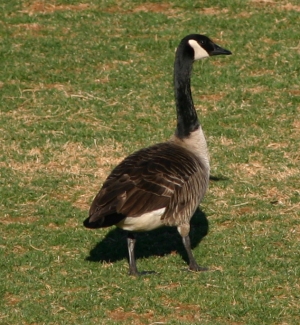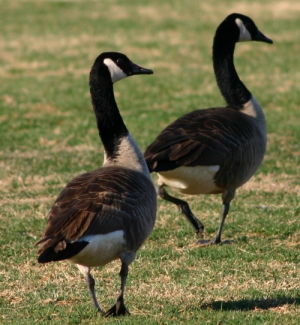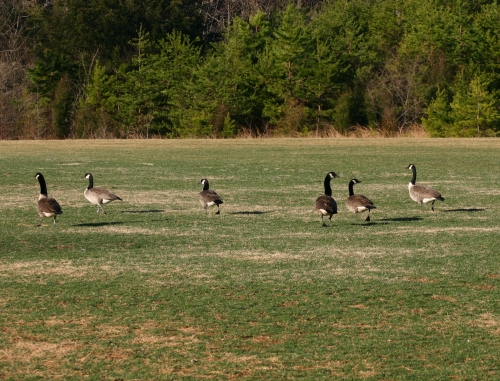


|
 |
 |
| One Goose |
Two Goose |
Tandem Friends
School, Charlottesville, Virginia, March
8, 2004
 Three Goose ... More
Three Goose ... More
Canada Goose Facts (Geesepeace,
March 8, 2004)
• Life expectancy about 20 years
• Weight: 20-25 pounds
• Migration is a learned process
• Migratory geese flight range 2 – 3 thousand miles
• Resident geese flight range: 100 –200 miles to find food, water,
and safety.
• Resident geese can fly long distances as their migratory cousins,
but generally have learned that it is not necessary.
• Migratory geese do not become resident geese unless they are injured.
• Mating season: February to March
• Geese mate for life and will stay together during all seasons.
• Geese will find a new mate if mate dies or is killed.
• Migratory geese nest in Canada.
• Geese nesting in the U.S. are "resident" geese who were
born here.
• Geese return to the general area of their birth each year to mate
and nest. Sometimes the exact site, sometimes a nearby pond or other body
of water.
• The instinct to return to their general area or birth is very strong.
• Migratory geese fly 2,000–3,000 miles to return to these sites.
• Resident geese do not know how to migrate.
"The current population estimate is around 200,000 resident [Canada]
geese in Virginia and over 1 million in Atlantic Flyway. In contrast to
Resident geese, the Migrant Canada goose population declined in the late
1980's and early 1990's. The traditional (November - January) goose hunting
season was closed from 1995-1998 because of concern for this population.
Special hunting seasons were developed to help manage the resident goose
population and to providing opportunities for waterfowl hunters when the
regular season was closed." (Virginia
Department of Game & Inland Fisheries, Fact
Sheet, The Status of Resident Canada Geese, August 2003)
|






